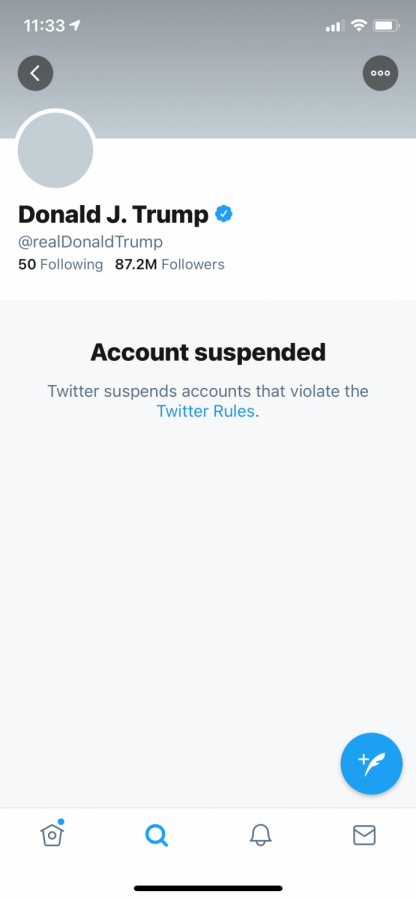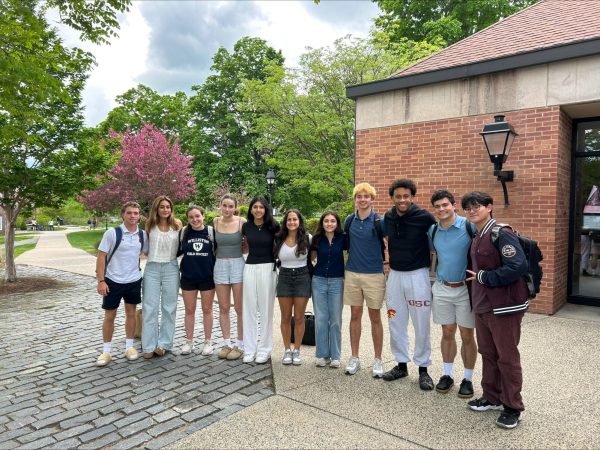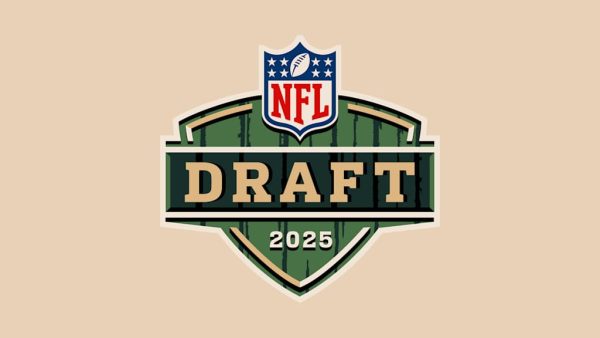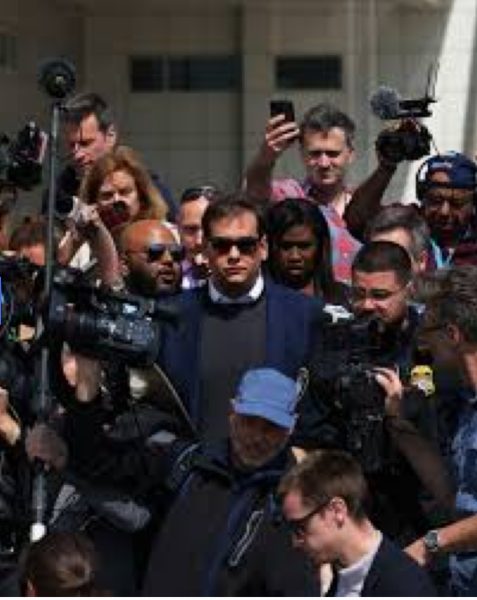Trump’s Tweets and the Capitol Riot
On Friday, Jan. 8, President Donald J. Trump’s Twitter account @realDonaldTrump was permanently suspended for the former President’s potential incitement of the riot at the U.S. Capitol on Jan. 6. In subsequent few days, Trump was been banned or restricted by platforms such as Twitter, Facebook, Instagram, Snapchat, TikTok, YouTube, Reddit, and Google.
Twitter suspended Trump’s account mainly because of two of the tweets the now-former President posted on Jan. 8, one complimenting “The 75,000,000 great American Patriots who voted for [him],” and the other stating that “[he] will not be going to the Inauguration on January 20th.”
Following the mob, which even Senate Majority Leader Mitch McConnell, on Jan. 19 admitted Trump “provoked” by sharing lies, Trump became, on Jan. 13, the first ever President to be impeached twice. The article that the House adopted against Trump charged him with “incitement of insurrection.”
Lily Vengco, a junior from Longmeadow, Mass., feels Trump’s tweets had a direct influence over his supporters and their actions storming the Capitol.
“I believe that Trump’s tweets strongly influenced the riot at the Capitol,” she said, “mainly because most Trump supporters I have met or seen online have relied heavily on his timeline when it comes to pulling evidence, taking action, or joining in with new ideas.”
“Though the president doesn’t seem to always directly incite violence,” Lily said, “he definitely has on a few occasions: for example, one of his most famous tweets: ‘When the looting starts, the shooting starts.’”
Trump used this phrase to comment on the protests over George Floyd’s death in May 2020.
He has also posted other tweets that could potentially be considered incitement. Before the riot at the Capitol, Trump tweeted several times to encourage his supporters to protest on Jan. 6, including one on Dec. 19 saying, “Be there, will be wild!”
On Jan. 6, he wrote, “Get smart Republicans. FIGHT!” He also urged his supporters in a speech to “walk down to the Capitol.”
The mob of Trump supporters broke into the Capitol at around 2:45 p.m., damaging the building, and forcing the Congress that was certifying the result of the Presidential election to go into lockdown.
There were five confirmed deaths, including one U.S. Capitol police officer, and a female Air Force veteran among the mob who was fatally shot.
Like Lily, Abby Belfer, a senior from New York, thinks Trump’s behavior strongly influenced his supporters.
“[Trump] made the unprecedented decision … to go out kicking and screaming, and that’s the example that he set for all his supporters,” she said.
Elsa Frankel, a sophomore from Florence, Mass., likewise believes that Trump “influenced the riot significantly.”
She believes that although Trump’s intention was unclear, and that he did not post anything directly encouraging his supporters to start the riot, he also did not attempt to stop them.
“Regardless of whether his intentions were to incite a riot or not, (which I have thoughts on but can’t know for sure), his words never explicitly discouraged it while it was happening,” said Elsa.
Elsa thinks that although Trump did ask his supporters to be peaceful afterward, it wasn’t immediate enough in the situation, and his message were blurry.
“He urged peace but took a while to directly tell rioters to stop and leave,” Elsa said. “Even then his language was muddled.”
Regarding Twitter’s decision to kick Trump off, Lily believes the company was within its rights.
“Twitter as a private company has to abide by their Terms of Services,” she said. “If you look into the terms, Twitter states they have the right to remove any account who violates the User Agreement, which requires users to not harass or have unlawful conduct.”
Lily thinks Twitter should have suspended Trump’s account well before Jan. 8, however.
“Trump has violated both of these requirements on multiple occasions, and so I’m surprised it took Twitter this long.”
Lily points out that Trump is not only harassing other accounts, but also spreading fake news on Twitter, which is against their regulations.
“On top of Trump harassing other political figures or just everyday people (He went after GRETA THUNBERG),” she said, “he is also the sitting president. He is the country’s executive, and yet he has been caught on multiple occasions spreading misinformation and lies to his followers.”
Greta Thunberg is an 18-year-old Swedish environmental activist. When she was named Time’s Person of the Year for 2019, Trump commented on Twitter, saying that “So ridiculous. Greta must work on her Anger Management problem, then go to a good old fashioned movie with a friend! Chill Greta, Chill!”
“The amount of hate and misinformation he spreads is dangerous,” Lily added. Abby also believes that Twitter should have banned Trump earlier.
Lily thinks that although social media companies say they are working on taking down fake news, the users of the app should also actively examine the information online and take responsibility for cleaning it of dangerous lies.
“Instagram has already done a great job of taking down certain misinformed posts, but sometimes they aren’t fast enough,” Lily said. “If you see someone spreading misinformation, call them out, because maybe they themselves don’t even know what danger they’re causing.”













